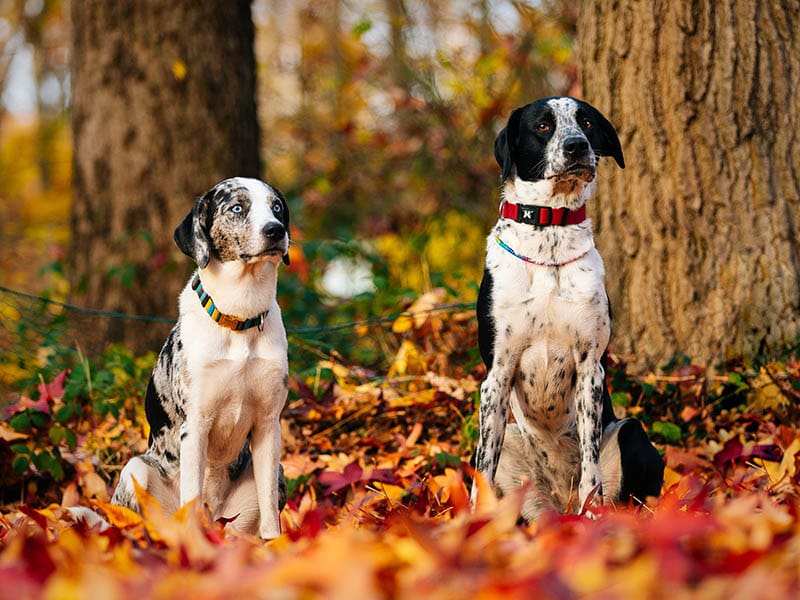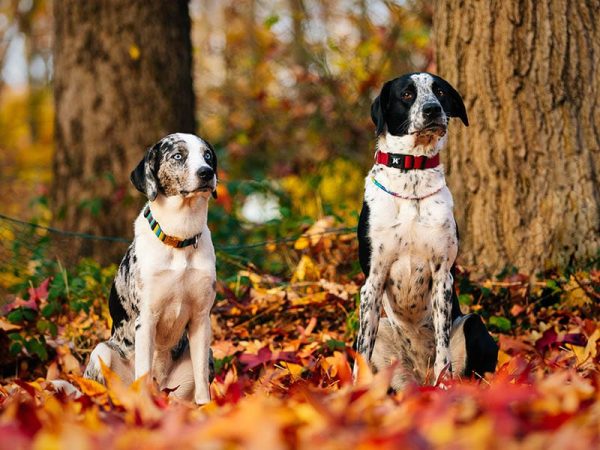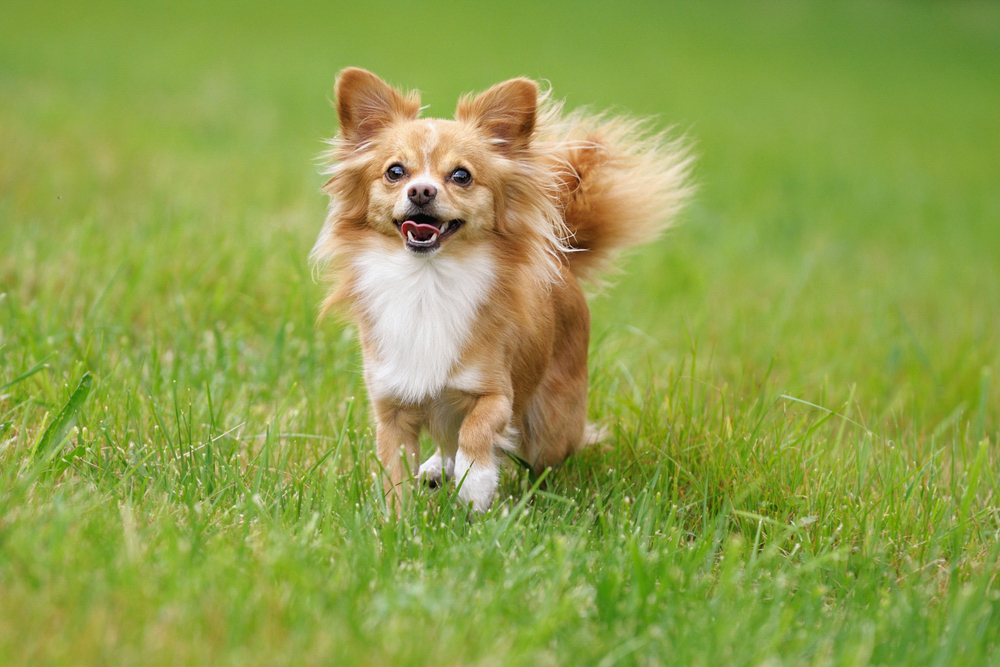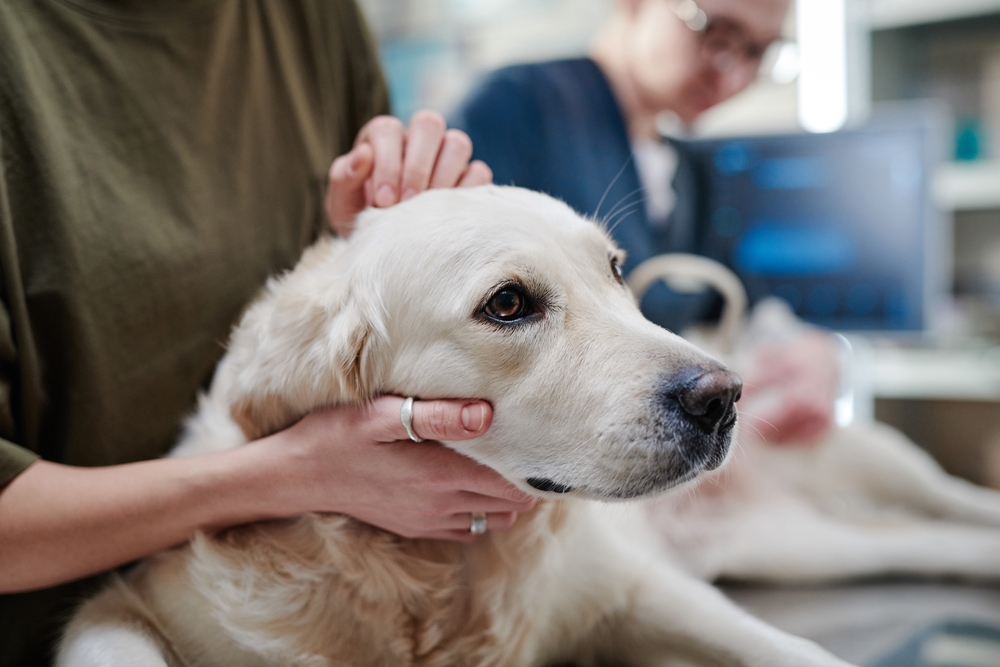Click to Skip Ahead
Domestic dogs are not monogamous, unlike wolves. Instead of having a single mate and protecting them, dogs will have multiple mates over several years. Furthermore, the father dog does not participate in paternal care (usually). In wolves, pack members would assist the mother in caring for the pups. However, this doesn’t typically occur in dogs.
For one reason or another, domestic dogs lost their monogamous tendencies as humans bred them. Selective breeding eliminated these behaviors (on purpose or accidentally). Some dogs still form strong bonds with a specific dog but that doesn’t mean they’ll only mate with that dog. Most dogs will mate with several partners during their breeding season if left to their own devices.

Are Dogs Faithful to Their Mates?
Dogs generally do not exhibit the same level of fidelity or faithfulness to their mates as humans might understand. Dogs are not monogamous animals by nature, and their mating behaviors are influenced by their instincts, reproductive drive, and social dynamics. Unlike some monogamous species where individuals form long-term pair bonds, dogs typically do not mate for life or remain exclusively faithful to one mate.
In the wild, wolves (the ancestors of domestic dogs) often live in packs with a dominant breeding pair and their offspring. However, wolves and wild canids can also engage in polygamous mating, where multiple individuals mate with different partners.
It is likely that dogs just tend towards having several partners instead of just one. This behavior is likely due to them being bred and domesticated over thousands of years, shifting their behavior and social dynamics. That said, every dog is an individual. Some dogs may show signs of being monogamous, though these aren’t usually particularly strong. Likely, strong bonds with other dogs don’t necessarily affect mating patterns.
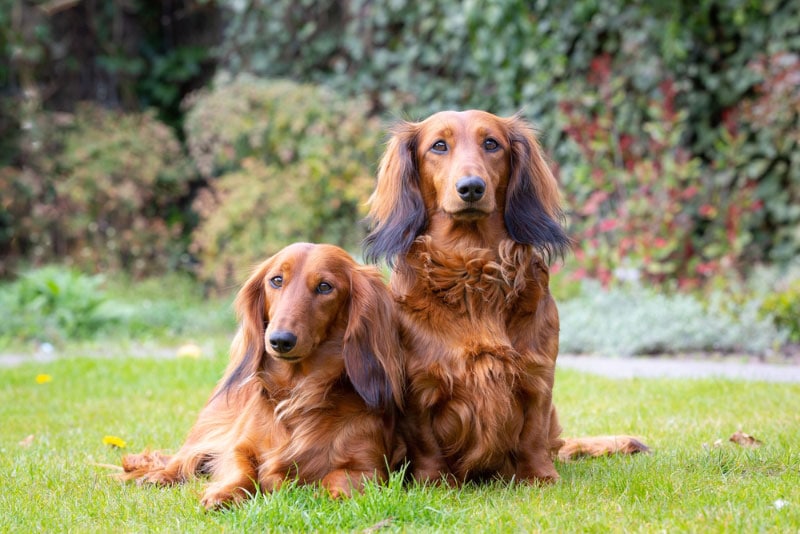
Why Aren’t Dogs Monogamous?
A dog’s lack of monogamy hinges on several factors. We don’t know why this behavior doesn’t occur in dogs anymore. However, here are some of the most popular theories:
- Evolutionary History: Dogs are descendants of wolves, social animals living in packs. In a wolf pack, an alpha male and an alpha female typically form the dominant breeding pair. However, other members of the pack may also mate with each other, leading to a non-monogamous mating system. Their monogamy wasn’t exactly set-in-stone.
- Reproductive Strategy: Like many other animals, dogs have a strong drive to reproduce and pass on their genes to the next generation. Non-monogamous mating increases their chances of successful reproduction and genetic diversity in their offspring.
- Environmental Factors: In the wild, dogs and wolves face various challenges, such as changes in food availability and environmental conditions. Non-monogamous mating can be advantageous in ensuring the survival of their species by increasing genetic diversity, making them better adapted to changing environments. Furthermore, in captivity, dogs often don’t have control over what partners are available.
- Lack of Pair Bonding: Unlike some monogamous species, dogs do not form long-term pair bonds with their mates. Their social structure is more fluid, and mating partners can change depending on various factors, such as the availability of potential mates and the mating season.
- Domestication: Domestication can further influence mating behaviors in dogs. Selective breeding by humans has led to a wide range of dog breeds with different behaviors and temperaments. While some breeds may exhibit more attachment to a specific mate, the overall non-monogamous nature of dogs persists.

Conclusion
Dogs are not monogamous animals. Instead, they mate with several mates over a single breeding season when left to their own devices. Domestic dogs have lost their tendencies towards monogamy throughout their evolution and domestication.
We don’t know exactly why domestic dogs lost their monogamous instincts. It’s likely a mix between genetics and conditioning. In captivity, dogs don’t have much choice in who they mate with, so it may have been better for them to lose their tendency towards monogamy at some point in their evolution.
While some dogs may form strong bonds with specific mates, these bonds are not typically exclusive, and most dogs will mate with several partners during their breeding season. Ultimately, dogs, like many other animals, do not possess the same concept of faithfulness or monogamy as humans do. Their behaviors are shaped by their instincts and the social context in which they live.
That said, dogs exhibit some behavior differences, as they are all individuals. However, most dogs are not monogamous or even close to it.
Featured Image Credit: PhoTonie, Shutterstock

